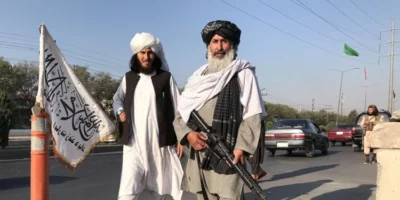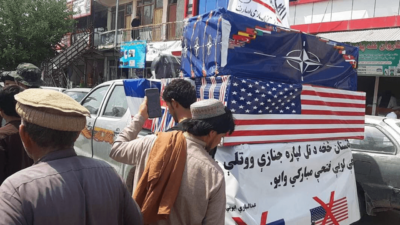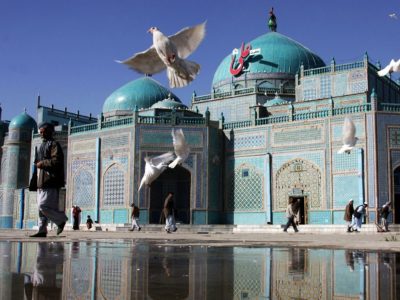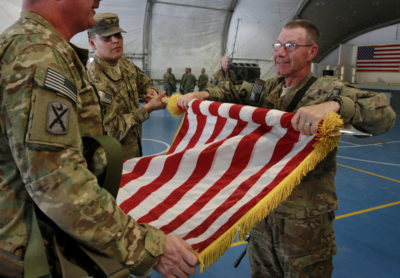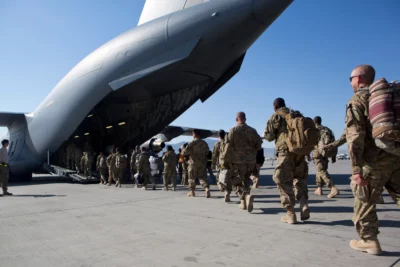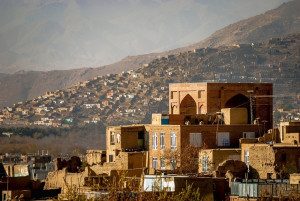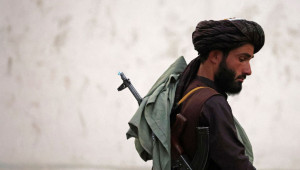Understanding Afghanistan's Complex Societal Dynamics
Afghanistan holds immense geopolitical significance in the global politics. The country has caught the attention of international powers and newspapers since the 9/11 plane crashes into the World Trade Center. Since then, it continued to remain in the headlines. However, Afghanistan has always been discussed as anything but a chessboard of global politics or a security threat to regional and global peace. These aspects hold significance in shaping the Afghan predicament, but the country’s internal dynamics are also responsible for chaos and turmoil in Afghanistan.
Visit of Afghan scientists to Russia
On May 27-28, 2024, a delegation of the Academy of Sciences of Afghanistan, headed by Vice-President Moulawi Rozi Mohammad Rashid, visited Moscow at the invitation of the Institute of Oriental Studies of the Russian Academy of Sciences (OIS RAS). This is the first visit of Afghan scientists to Russia after the Taliban came to power in August 2021.
Another impasse in Western-Afghanistan relations
The UN Security Council held its regular meeting on Afghanistan on 6 March. The Special Representative of the Secretary-General and Head of the United Nations Assistance Mission in Afghanistan (UNAMA), Roza Otunbayeva, made a report and provided an update on political, humanitarian and human rights developments in the country since 1 December 2023. It is recalled that UNAMA’s mandate expires on 17 March this year. This fact has prompted the UN Security Council…
Central Asia and Afghanistan: New routes and economic opportunities for the region
In 2023, Afghanistan experienced a limited return to economic growth and infrastructure development after several years of severing most existing ties. During the year, several significant international events occurred in Central Asia, resulting in increased global attention to the region, and a number of projects of Eurasian scale were initiated. At the end of 2023, it appears that there is a long-term interest from Afghanistan in participating in these projects…
Unsuccessful UN Conference on Afghanistan
The United Nations convened a conference of special envoys for Afghanistan in Doha, Qatar on 18-19th February 2024. The conference was headed by the Secretary General of the United Nations, Antonio Guterres. International envoys belonging to different nations around the world attended this conference. However, the Taliban*, who are the key stakeholders in Afghanistan, did not join the conference. The conference was convened to comply with the recommendations of Feridun Sinirlioglu, Special Coordinator of the United Nations in Afghanistan…
The Cost of American Friendship
The Pakistani leadership’s decision to deport hundreds of thousands of Afghan refugees back to Afghanistan has revealed the United States’ disdain for those it called partners more than two years ago. On October 3, Pakistani authorities announced their decision to sent Afghan refugees home, including those who immigrated here in the 1980s, lived in the country for some decades of their lives and have already integrated into Pakistani life with nothing in Afghanistan. October 31 was set as the deadline for voluntary departure from Pakistan. Those who do not leave the country…
The US Afghan Adjustment Act is still stuck in the pipeline. Or - the White House’s policy of double standards
It is an accepted fact that when a major world power gets involved in a foreign conflict, it will always find local sympathizers – we could call them helpers or even collaborators – who, whether motivated by ideology or forced to do so by circumstances – support external intervention in the fate of their country. However, there is no guarantee that the world power that embarks on a war will be successful, either militarily or politically. Throughout history…
Where is Afghanistan and where is Zangezur...
Afghanistan continues to be an area of instability in Asia, with multiple internal and external political conflicts, both ongoing and potential, no socioeconomic stability to speak of, and new waves of irrational migration being created as we speak. The obsession with starting wars has returned to a nation where generations have been educated in a warlike attitude and where there are no work conditions. Furthermore, in order to create controlled disorder in the Asian stage, various centers of power frequently start such a crisis from the outside…
Afghanistan two years on
The West is seeking to radicalize and break up the Taliban. It is now two years since the USA withdrew its troops from Afghanistan. In August 2021 the world looked on as the 20-year US campaign ground to an end. What has changed since the US exit from the country? As for the Americans themselves, their attitude to Afghanistan has changed somewhat in the past two years. If, previously, the average U.S. citizen was strongly opposed to the withdrawal of troops from Afghanistan, which was seen as a diplomatic retreat and a blow to America’s reputation, the opposite is now true. Even in Congress, the prevailing view is that ending the Afghan campaign saved Washington…
Afghanistan and regional security in Central Asia
Having an important geostrategic position and being an essential link in the development of cooperation between Central and South Asia as well as in regional security issues, Afghanistan has attracted a lot of attention from its regional neighbors. The Central Asian countries, objectively interested in multifaceted cooperation with all their neighbors, see Afghanistan not only...
Afghanistan: the Sad Outcome of the Bloody US Aggression
Major General Christopher Todd Donahue has marked a place for himself in the history books as the last American soldier to secretly escape from hostile Kabul under the cover of night. It happened on August 15, exactly one year since the “brave yankees” fled Afghanistan after two decades of brutal and bloody occupation, leaving the country devastated...
Is Afghanistan becoming a Base for the Forces Opposing Pakistan?
In recent months, the situation between Pakistan and Afghanistan has increasingly mirrored that of the past few years, when the Afghan Taliban (representatives of the banned group in Russia), fighting against the government in Kabul, used Pakistan as their rear. And this has been evidenced by recent intensified clashes between separate Afghan Taliban...
